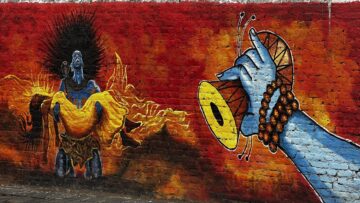Indic Academy and Inter-Gurukula University Center announces two short term research fellowships on
1. Comparative study of Social Inclusionism in World Cultures
2. Social inclusionist mechanisms and movements in Hindu Tradition
1. Comparative study of Social Inclusionism in World Cultures
Studies on Social Exclusion in Hindu society have two strands: those which project it as a weird Hindu feature and those which place it alongside other Social Exclusion cultures of the world. Interestingly studies on Social Inclusion in Hinduism have been influenced by the studies on inclusion in other world cultures.
The project proposed is a review of the existing literature on Social Exclusion and Inclusion covering ideologies and practices of social exclusion evolution of ideologies and practices of social inclusion among world societies, responses to exclusionary ideologies and practices and sources and motivations for inclusionary ideologies and practices in political, economic, religious/spiritual aspects of society, apparent and real social exclusions, superficial and subtle understandings of social behaviour, norms and customs as exclusion or inclusion, gross and abstruse aspects of social exclusion and inclusion particularly emic or insider’s understandings and etic or analyst’s understandings of the ideas of social exclusion and inclusion with the aim of a comparative study of Social Inclusionism in world cultures. It is hoped that the proposed study can bring out the distinct features of processes of inclusion in Hindu society.
2. Social inclusionist processes and movements in Hindu Traditions :
Hindu society had and has its own share of social exclusion and inclusion. Certain forces have been repeatedly trying to leverage the exclusionist aspects to achieve their goals while the integrational ideologues have been highlighting the inclusionist aspects. In the Hinduphobic narrative Hindu religious /spiritual traditions have been projected as exclusionist or inclusionist from time to time as per the temporary requirements of the Hinduphobic narrative-building. Sometimes roots of social exclusion are traced to religious /spiritual texts of Hinduism and at other times the perceived or real social exclusionisms are argued to be against the inherent and characteristic inclusionism of Hindu culture.
These studies betray a failure to properly explain :
a. The prevalence of deep knowledge and practices of spiritual aspects from Vedic and similar texts and prevalence of mystic songs expressing such knowledge and experiences among communities and persons from communities considered to be marginalized and oppressed
b. Inclusion of persons from such communities in the leadership of various spiritual movements and worshiping them as saintly figures within Hinduism
c. Use of the concepts from the Vedantic texts in the inclusion or countering exclusion of communities and persons from communities considered to be marginalized and oppressed.
Prevalence of narratives and characters found in Sanskrit texts in the community-origin narratives of these communities, prevalence of folk-versions with local adaptations of narratives and characters found in Sanskrit texts among these communities also does not fit into a model of exclusion of these communities from the rest of the Hindu society. All these facts need a different tradition-insider’s perspective to capture the social and cultural processes inside the Hindu society. The proposed project aims at bringing out such a perspective.
Duration of the fellow ship : Three months
Last date for the submission of statement of interest : 15th November, 2019
Applications along with the curriculum vitae of the applicant may be sent to namaste@indica.org.in
Disclaimer: The opinions expressed in this article belong to the author. Indic Today is neither responsible nor liable for the accuracy, completeness, suitability, or validity of any information in the article.





